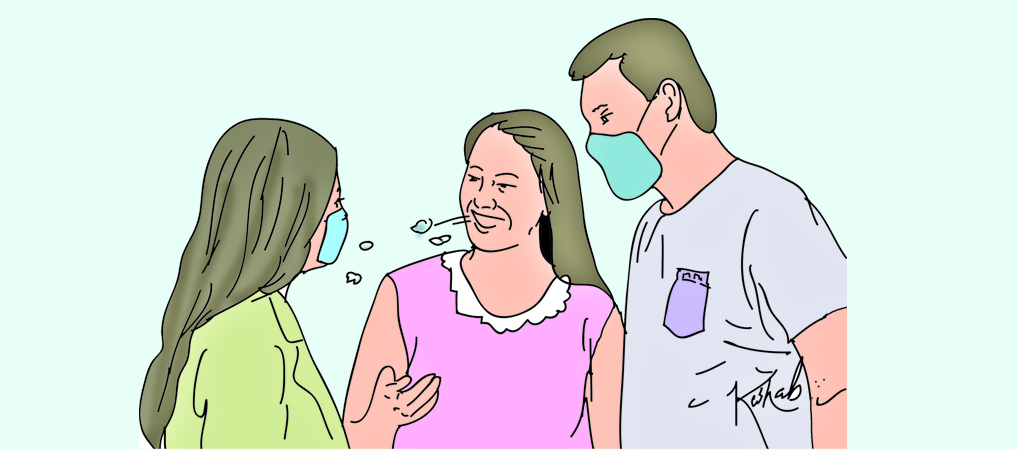Experts say coronavirus spreads not by air but by airborne droplets

By Aashish Mishra
Kathmandu, July 9: In a letter published on Monday in Clinical Infectious Diseases, an international journal of the Infectious Diseases Society of America, two scientists from Australia and the USA wrote, “Studies have shown beyond any reasonable doubt that [COVID-19] viruses are released in micro-droplets small enough to remain aloft in the air."
This got interpreted by many people to mean that the coronavirus could be transmitted by air which is certainly not the case, said Dr. Khem Bahadur Karki, professor at the Department of Community Medicine of Institute of Medicine (IoM).
“The virus cannot survive independently. It always travels in droplets of bodily fluids that are released during coughing or sneezing,” he explained. “These droplets are small, and hence remain in the air for a while and that might get other people infected.”
This is a case of aerosol transmission, meaning that people can get infected through droplets when in close contact, and not that the virus itself is air-borne, Dr. Karki said.
Dr. Sameer Mani Dixit, director of research at the Centre for Molecular Dynamics Nepal, shared that the letter was no cause for alarm. “This is not new information that has come to light. National and international health experts and agencies have always been saying that droplets can be a means of transmission,” he said.
What the letter does mean, though, is that people in indoor spaces might be at a greater risk. “People staying in close proximity to each other in enclosed spaces do need to be careful and adopt precautions,” said Dr. Dixit.Nevertheless, both Dr. Karki and Dr. Dixit emphasised the need to be extremely vigilant and adopt all necessary measures.
“Proper use of masks, frequent handwashing and application of sanitizers are a must with regard to safety in the current situation,” Dr. Dixit said.
Dr. Karki also said, “To avoid infected droplets, people must rigorously abide by the rules of social distancing and stay more than 2 metres apart, sometimes more, depending on the situation.”
Internationally too, talk of the coronavirus spreading by air remains disputed. The US Centers for Disease Control and Prevention (CDC) maintains on its website that the virus spreads mainly from person to person, mainly through respiratory droplets but says that it is in the process of learning new details about the virus.
“When an infected person talks, coughs or sneezes, small droplets might be released which float in the air and infect others when they land in the mouth or nose of other people or when inhaled into the lungs,” both Karki and Dixit said, underlining that the virus could not circulate in the air on its own.
Meanwhile, the World Health Organisation (WHO) on Tuesday acknowledged the issue and said that it had begun looking into it. It did not confirm or deny anything for now.
Recent News

Do not make expressions casting dout on election: EC
14 Apr, 2022
CM Bhatta says may New Year 2079 BS inspire positive thinking
14 Apr, 2022
Three new cases, 44 recoveries in 24 hours
14 Apr, 2022
689 climbers of 84 teams so far acquire permits for climbing various peaks this spring season
14 Apr, 2022
How the rising cost of living crisis is impacting Nepal
14 Apr, 2022
US military confirms an interstellar meteor collided with Earth
14 Apr, 2022
Valneva Covid vaccine approved for use in UK
14 Apr, 2022
Chair Prachanda highlights need of unity among Maoist, Communist forces
14 Apr, 2022
Ranbir Kapoor and Alia Bhatt: Bollywood toasts star couple on wedding
14 Apr, 2022
President Bhandari confers decorations (Photo Feature)
14 Apr, 2022









